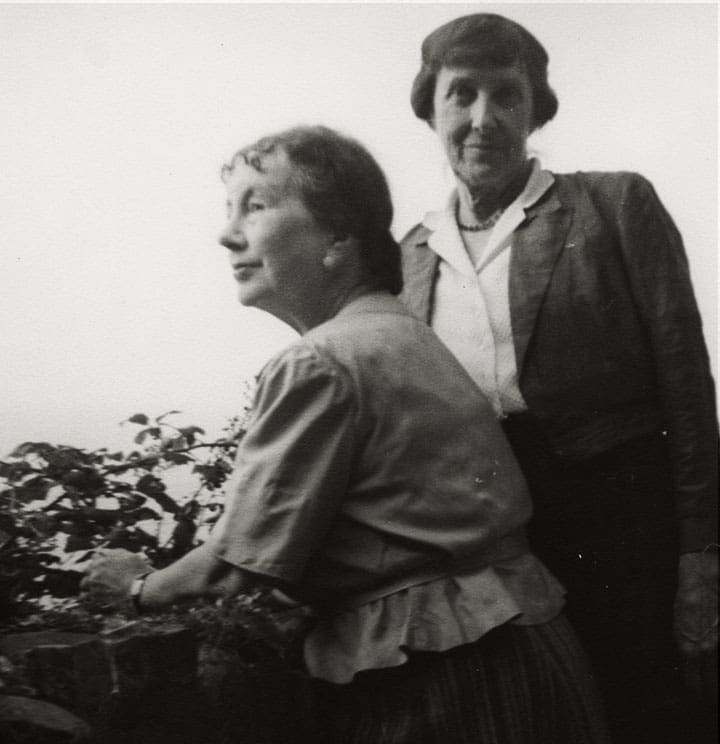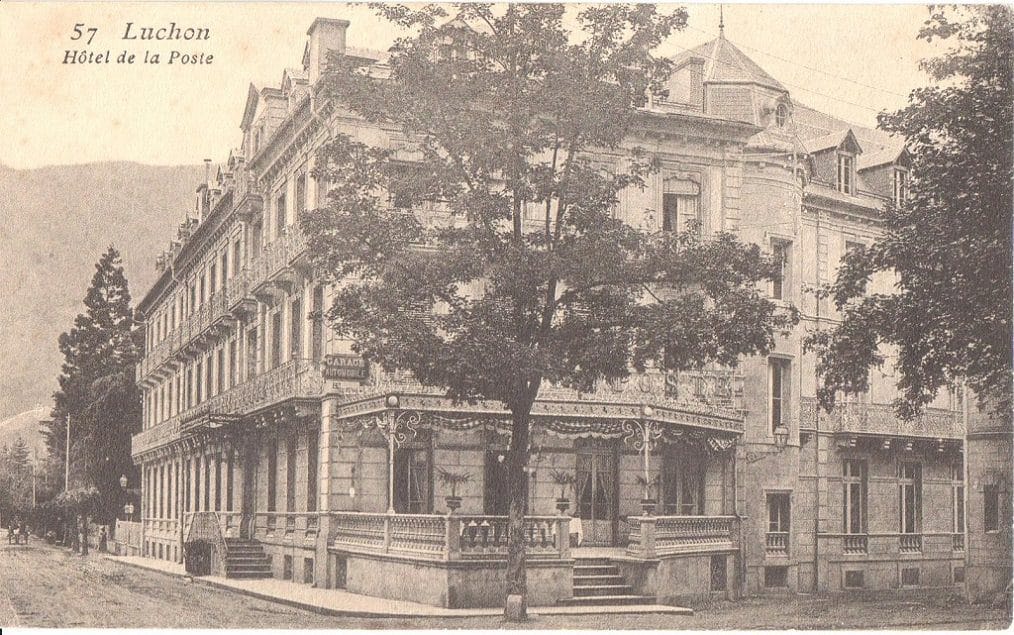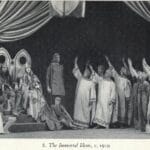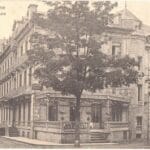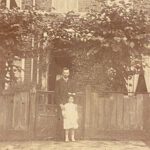Up till now Judith Ackland has been a rather shadowy figure in my research. I had only read her thoughts in her own words in a letter to Rupert Graves (see Finding Judith). Although heartfelt, that was a very formal letter. Otherwise, all the information has come from Mary Stella… and strangely that has not been very revealing. It’s like the person who tells you all about their absolute best friend in the world – and how amazing they are – and you’re left wondering who this paragon really is… are they even fully human? Now I am reading the correspondence between Judith and Mary Stella, I feel as though I’m meeting Judith for the first time. And I like her enormously.
Mary Stella and Judith – the early years
Judith Ackland and Mary Stella Edwards were very different. Mary Stella was short, theatrical, bohemian and confident. Judith was tall, self-effacing, private, and practical. Naturally, their letters reflect this. Mary Stella carefully crafts her letters, writing them with an audience in mind. Judith’s letters are almost stream-of-consciousness, conversational, with inconsistent spelling and very little respect for the edge of the paper.
The two women met at the Regent Street Polytechnic in 1919, but the early years of their relationship were a slow burn. Mary Stella was an extravert with a lot of friends. The much quieter Judith was called home to Bideford after only a few months. First one sister and then another became sick with TB. Both died; devastating the family. This meant that much of Mary Stella and Judith’s early relationship was conducted by letter. Sometimes they stayed with one another for a week at a time. But this was in their respective family homes with parents very much present.
Judith remained quite reserved in many of these early letters. She usually wrote about everyday things, or gave constructive feedback on Mary Stella’s poems. Again and again she laments that she has not really written all that she wanted to say to Mary Stella. However, an event in June 1925 marked a turning point for Judith. It was a kind of crisis, that shows Judith’s immense strength and resilience.
Mercy mission to the Pyrenees
On 12 June, 1925, Judith wrote to Mary Stella from the Hotel de la Poste in Bagnères-de-Luchon: “My darling, I’m afraid this letter will give you quite a shock…”

(This photo is from 1890)
The trip to the Pyrenees was a shock to everyone. Mildred, a friend from childhood, was extremely ill, and had sent instructions from France as she was, “in all their opinions, dying” as Judith put it. Apparently, Mildred had said “I must have my Mother but I want Judith so wire for both”.
Judith found a family friend to help her get a passport at extremely short notice. She travelled from Bideford to London to fill out the application. Then picked up her new passport the following morning just in time to board the 11am train from Victoria to Paris. She arrived in Luchon the following afternoon. The whole adventure was such a whirlwind, that she hadn’t realised that Luchon was in the Pyrenees until a woman on the train asked where she was going!
First time abroad
Judith had never travelled abroad before. However, she told Mary Stella that she found the journey “interesting rather than alarming”. She focussed her anxiety on whether Mildred would still be alive when she arrived. Judith’s parents hadn’t been particularly helpful: “Mother & Dad were in rather a fuss about my going, but I pointed out that if I could not travel alone at 33 when the devil could I?” And Mary Stella was shielded from the drama until Judith had safely arrived: “I purposely did not tell you I was going until now, to save your being worried at the thought of the journey I was making. Now it is over & I am none the worse.” Then she added: “My dearest thing write to me soon.”
Fortunately, Mildred was very much alive when Judith arrived. She had stomach adhesions, and although the doctor had indeed thought she was going to die, she managed to recover on an extremely restricted diet.
You may be wondering where Mildred’s mother was in all this, and why Judith had to travel alone when Mildred had asked for both women. Judith writes: “her mother thought they must have meant ‘or’ not ‘and’ & anyway she had lumbago (well it would be difficult to travel with lumbago) so she wired to me saying ‘I can’t go, can you’. Well, I had to go then. I wired back ‘can only go if you garantee expenses’. She wired that she would.” Having found Mildred recovering, Judith made the dry observation that her mother “will say – ‘you see Mildred wasn’t dying really – she never does’.”!
It seems significant that Judith’s own observation on her arrival is that “If poor old M. recovers I shouldn’t mind it”, with a p.s. “and if she doesn’t recover I shall be thankful that I came.”
Continued in Part 2…
Previous Blog: A Love Story
Next Blog: Getting to know Judith – Part 2
